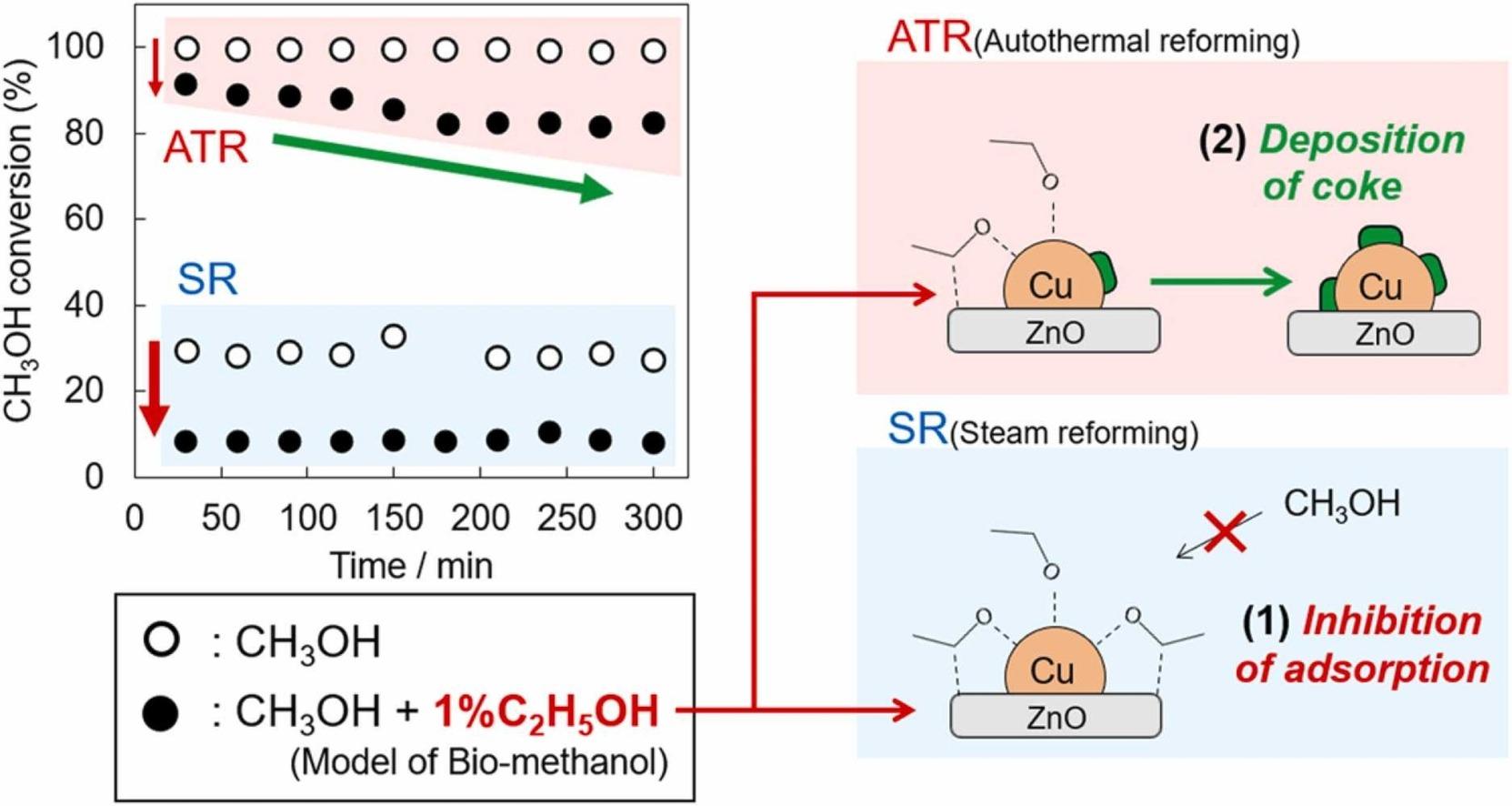野本賢俊君が中心となって行ったモデルバイオメタノールの酸化的改質反応に対する不純物の影響の解析に関する研究成果がApplied Catalysis B誌 (Elsevier)にAcceptされました。Our paper reporting the Inhibitory effect of trace impurities on methanol reforming was accepted in Applied Catalysis B (Elsevier).
「Inhibitory effect of trace impurities on methanol reforming by Cu/ZnO/Al2O3 catalyst: Steam reforming and autothermal reforming of model bio-methanol」.
Nomoto, Katsutoshi; Miura, Hiroki; Shishido, Tetsuya
Applied Catalysis B, 2023, . DOI: 10.1016/j.apcatb.2023.122374
Model bio-methanol was prepared by adding a trace quantity of lower alcohols (ethanol, 1-propanol, and 1-butanol) as model impurities to methanol. The catalytic performance of the Cu/ZnO/Al2O3 catalyst for steam reforming (SR) and autothermal reforming (ATR) of model bio-methanol was investigated to evaluate the inhibitory effect of lower alcohols. In SR, the activity (methanol conversion and H2 production rate) markedly decreased from the initial stage of the reaction. In ATR, the initial activity decreased slightly, and the activity decreased gradually with reaction time. In SR, the lower alcohol adsorbed strongly on the catalyst, resulting in the inhibition of methanol adsorption on Cu. In ATR, although the conversion of lower alcohol was promoted, the quantity of carbonaceous species derived from the lower alcohols increased with the reaction time. These inhibitory effects of lower alcohols were due to the inability of the Cu-based catalyst to cleave C-C bonds in lower alcohols.
